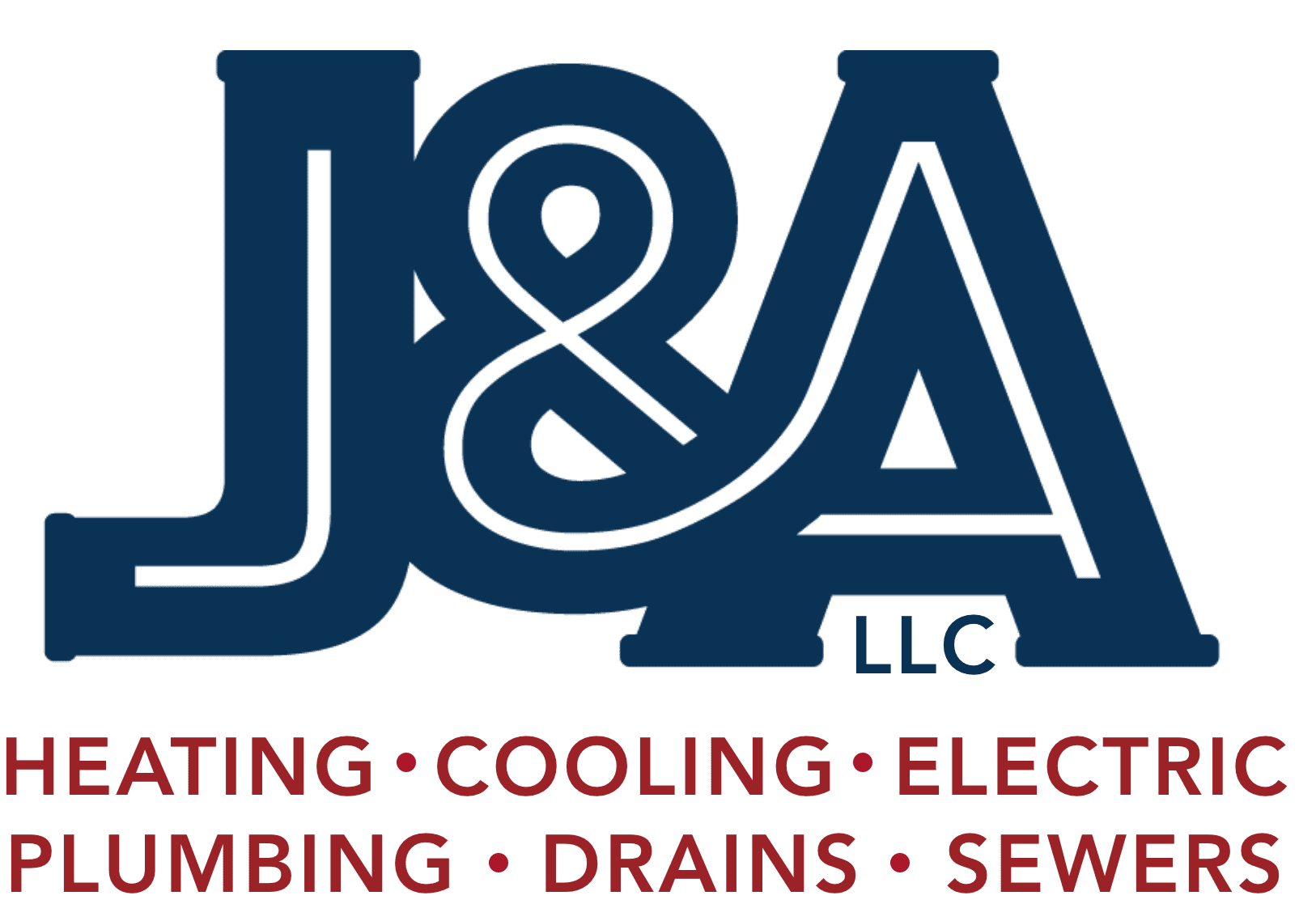Space Heater Safety Tips
Nothing can put the chills down your spine quite like winter weather creeping its way through every crack of your home. When Jack Frost comes nipping at your nose, it’s time to hike up the heat. For many households, this simply means raising the temperature on their central heating system’s thermostat. In many cases, however, you only need heat in a small area for a short time. Plus, sometimes, it simply makes sense to use an electric space heater than to heat the whole house.
True, adding an electric space heater to your cold-weather arsenal could make these bitter winter days a lot more bearable, but if used improperly, they may also pose a hazard to you and your family.
While most fires start in the kitchen, heating equipment is the second most common cause of residential blazes. You might assume that fireplaces are the chief culprit here. Still, according to the National Fire Protection Association, it’s actually space heaters that cause the most home fires outside the kitchen. Of the home fires started by heating equipment each year, nearly half are caused by space heaters, followed by fireplaces at 30 percent. This doesn’t mean you should get rid of your space heater; it merely means you need to take care to use the device as safely as possible.
Before proceeding, it’s important to note that today’s electric space heaters are designed to be safer and sleeker than the heaters of old.
“It’s something you may remember when growing up in your grandma’s house, but they used to be a lot more dangerous than they currently are,” says Brett Brenner, president of the Electrical Safety Foundation International. They still require a mindful operation, and he says, for example, “People do leave them on overnight when they are sleeping, and we still don’t recommend it.”
Space heaters defined
Small electric space heaters are normally used when the central heating system is insufficient or when central heating is too costly to install or operate. In some instances, small space heaters can be less expensive if you only want to heat one room or supplement inadequate heating in one room. They can also boost the temperature of rooms used by persons who are sensitive to cold, particularly elderly persons, without overheating the entire home.
Although most space heaters work by convection – the circulation of air in a room – some depend on radiant heating.
Radiant heat is like the warmth you feel when sunlight hits your skin; Radiant heaters produce infrared radiation that directly heats objects and people within their line of sight and are a more efficient choice when you will be in the room for only a few hours and can stay within the range of view of the heater. They can also be more efficient when you are using a room for a short period because they save energy by directly heating the occupant of the room and the occupant’s immediate surroundings rather than the whole room.
Convection happens when the air surrounding the heater is heated.
That hot air rises toward the ceiling, pulling surrounding cool air toward the heater where that air is heated and also begins to rise. Air at the ceiling then begins to cool and fall until it’s drawn toward the heater once again. This is called a convection loop and, while air toward the ceiling will tend to feel warmer, the convection loop will eventually help to heat the whole room.
There is a third option, a combination heater that provides the best of both of these two types of heaters. They use a fan to help distribute heat throughout the home.

Safety first
Even though space heater technology has made them safer to use, safety remains a chief consideration when purchasing and operating space heaters. The U.S. Consumer Product Safety Commission estimates that residential fires associated with the use of space heaters result in more than 100 deaths each year. In addition, an estimated 6,000 people receive hospital emergency room care for burns associated with contacting the hot surfaces of room heaters, mostly in non-fire situations.
Before you purchase a space heater
First and foremost, always purchase your space heater from a reputable dealer and use it according to the manufacturer’s instructions
Next, look for safety features. Todays’ space heaters include a variety of safety features that help take a lot of the worry out of using them.
- This is extremely important. Is the heater safety certified? Make sure your heater carries a safety certification label from an independent testing organization such as the Underwriters Laboratory (UL) mark. These heaters have been determined to meet specific space heater safety standards, and manufacturers are required to provide important use and care information.
- To significantly reduce the risk of fires, many manufacturers equip their electric space heaters with cool-to-the-touch surfaces and other advanced safety features. Look for these features.
- Some space heaters feature an internal switch that automatically shuts off the power if the heater is accidentally tipped over or knocked down. Be sure your new heater has this trait. Also, look for a heater with a temperature control feature that will shut off the heater when the desired temperature is reached.
- Overheat protection is another invaluable safety function. This switch serves as a sensor that automatically turns the heater off if the internal components reach an unsafe temperature. Another “must” feature for your space heater.
- Sturdy cord: A space heater that features a longer, heavy-duty power cord will mean you won’t need an extension cord. Undersized and frayed power cords are a major source of fire danger. To prevent overheating, never use an extension cord or a power strip with an electric heater.
- Select a space heater with a guard around the flame area or the heating element. This will help keep children, pets, and clothing away from the heat source.
- Select a heater of the proper size for the room you wish to heat. Don’t purchase oversized heaters. Most heaters come with a general sizing table to help you select the correct size.
- Check the Consumer Product Safety Commission’s Safer Products site to make sure your electric heater has not been recalled.
Before you turn on a space heater
- Inspect it. Because you use space heaters for only a few months during the year, take a good look at your unit when you first take it out for the season.
- Read before you proceed. Read and follow the manufacturer’s instructions for operation and care.
- Be prepared. Before using a space heater, make sure your smoke and carbon dioxide detectors are in good working order.
- Keep it stable. Place the heater out of high-traffic areas and on a stable and level surface with minimal risk of it getting knocked over — NOT on carpets, furniture or countertops.
- Extension cords are a no-no. Always plug space heaters directly into a wall receptacle and never into an extension cord or power strip. Space heaters draw large amounts of current, and the high current flow through these various connections can cause these components to deteriorate, causing excessive heat and possible fires. Also, make sure not to plug the unit into the same circuit as other electric appliances.
- Never run cords under a rug. Okay, you want the space heater close enough to chase away the chill, but the nearest electrical outlet is all the way across the room. You decide the simple solution is to run the heater’s cord underneath an area rug. Don’t do it. Running the cord under the rug introduces the more serious danger of fire, as the cord can fray or crimp beneath the rug, completely unseen, with potentially catastrophic results.
- Check for damage. Speaking of frayed wiring, make sure the heater’s power cord is not damaged or frayed in any way.
- Establish a safety zone. Space heaters and fabrics of any type are a deadly duo. In fact, space heater fires are most commonly caused by some sort of fabric, including clothing, curtains, upholstered furniture, or even mattresses that come in contact with or sits to close to the heater. Always maintain a safety zone of at least three feet between your space heater and any type of fabric or other flammable material, including paper. Also, have a three-foot “kid-free zone” around space heaters and never use a space heater in a child’s room.
- Make sure the heater is out of the way of foot traffic, where it can be a tripping hazard. To keep you safe from dangerous falls and tumbles, your space heater needs to be positioned at least a couple of feet to the side of any doorway, path or high-traffic area of your home.
Powering up your space heater
- Is the plug snug? Make sure the heater is securely plugged into the power outlet. Ensure it doesn’t come loose or fall out.
- Do not use the heater if the power cord or heater is hot to the touch. Have it checked out by a qualified electrician.
- Train & teach. It’s wise to teach everyone in your household how to properly operate your heater.
- Run in spurts. Only use your heater for short periods of time. It’s not meant to be left on 24/7.
- Turn it off. Don’t use a space heater in an unattended room, in a child’s room (where kids might knock it over or burn themselves) or while you’re sleeping.
- Are they pet-safe? The satisfying warmth of a space heater is like a magnet for cats, but an inquisitive, or chilly dog, might also be fascinated. Though they may like to hang out near the heater, never leave pets unattended in any room with a running space heater.
- Use it for heat only. Space heaters are only meant to provide supplemental heat; don’t use them to warm your bedding, drying clothing or towels. And don’t use them to thaw frozen pipes.
- If your space heater is plugged into a ground fault circuit interrupter (GFCI) and it trips, don’t assume there is something wrong with the GFCI. Immediately stop using the heater until a professional can check it. If not, a serious shock could occur.
- Don’t leave your space heater alone. Even if you’re leaving the room for just a few minutes, switch it off before you go. You might just be going to the kitchen to get a quick snack, yet while you’re gone, the unit could overheat, tip or short-circuit. The risk is small, but it’s still a risk not worth taking.
- Leaving your space heater running all night long while you sleep is another no-no. If it overheats, tips over or short-circuits overnight, a fire could break out while you and your family are fast asleep.
- Moisture buildup. It might be tempting to use a space heater to warm up your bathroom while you shower, resist the urge. Unless the heater is specifically designed for use in humid environments (and few are), it’s never safe to have a space heater in a confined, highly humid space – like a bathroom with a closed door and a running tub or shower. Doing so could create shocks as the moisture builds up.
- Broken heaters should be checked and repaired by a qualified appliance service center. Do not attempt to repair, adjust or replace parts in the heater yourself.
- Finally, replace those older space heaters with newer, safer models.
So, are electric space heaters safe?

Yes, if used properly.
But only by educating yourself about the safety hazards that come with the improper use of portable electric space heaters will you achieve better peace of mind as you keep your house warm, comfortable and fire hazard-free this winter.



